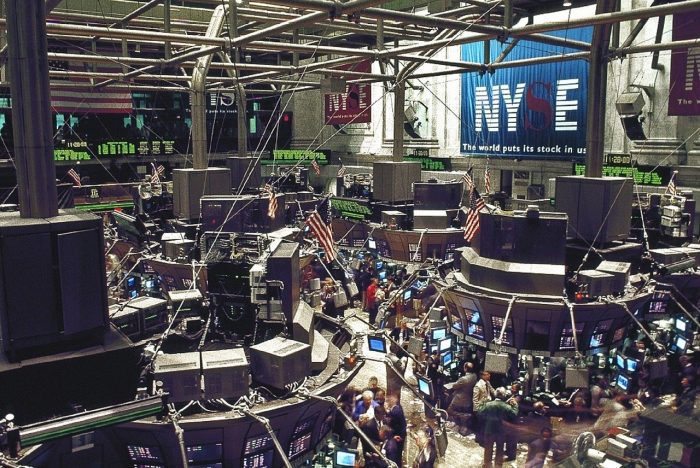How Property Has Historically Compared to Shares in Financial Crises
Published
April 28, 2020
Published
April 28, 2020

One overlooked advantage of real estate is its illiquidity during a financial crisis. Unlike shares, you can’t sell a property at the click of a button — and that stability often works in investors’ favour.
History shows that liquidity drives volatility. Across major downturns, share markets have plunged, while Australian property values have often held firm or continued to rise.
How Property Has Historically Compared to Shares in Financial Crises
1982 Recession
The deepest post-war recession lasted two years. During that time the share market fell 13.9 per cent, while national property values rose 7.8 per cent.
1989 Recession
The “recession we had to have” hit during an era of relentless interest rates, sky high unemployment and considerable government debt. 1990 saw the stock market droop by 17.50 per cent, while the property market rose 4.10 per cent.
2001 Dot Com Bubble (and September 11)
Extreme speculation in internet-related companies in the late 1990s led to the infamous Dot Com Bubble and its subsequent burst in the early 2000s. Only 48 per cent of US dot com companies founded since 1996 survived through 2004 – all had lower valuations. The September 11 attacks only sped up the stock-market crash.
In Australia, the share market dropped by 8.10 per cent in 2002. The property market rose 13.90 per cent.
2008 Global Financial Crisis

Australia avoided recession during the GFC shock because of our large resource exports to China. But the cost to the country was still great. Government debt was $58 billion at the start of the crisis. It hit $190 billion just four years later.
In 2008, the ASX fell 40.4 per cent during the Global Financial Crisis. In contrast, Australian property values still managed to rise 7.5 per cent that year.
Property owners still sweat during economic downturns. Uncertainty remains the Achilles Heal for many investors. But as tough as it was for property owners during the last financial crisis in 2008, the most recent financial crisis, caused by COVID-19, will be a far different experience for owners of property.
Lessons for Property Investors from the COVID-19 Crisis
Interest deferral
During COVID-19, banks allowed borrowers to defer mortgage repayments for up to six months — a policy that wasn’t available during the GFC. This provided landlords time to stabilise cash flow while tenants managed their own challenges.

Code of Conduct
There are now rules in place for how tenants and landlords should behave. The COVID-19 impact on commercial property leases has brought about formal guidelines for how tenants and landlords should behave during the pandemic period, in the form of the COVID-19 Commercial Leasing Code of Conduct.
There was no sign of such a Code during the GFC.
Government stimulus
There was also no financial aid provided to employers and employees during the global financial crisis.
Fast forward to present day lockdown and the government’s huge financial stimulus package will see many businesses, which otherwise would have gone under, survive the COVID-19 period.
The same may be said for the hopeful explosion in consumer spending post-COVID-19.
It is too early to call this a likelihood, but there is at least a possibility of an economic boom thanks to reignited discretionary spending once we’re all let back into stores, offices and home opens.
Businesses are still fundamentally sound
This is a pandemic-caused crisis.
It has nothing to do with market bubbles bursting or shockwaves running through our property or finance market.
It has nothing to do with major companies operating poorly or being run by poor management.
Businesses will sadly suffer throughout this lockdown period, but the many we see survive it can return to operation knowing their business plan, strategy and operation are sound.
How Property Has Historically Compared to Shares in Financial Crises
| Period / Crisis | Shares (ASX) % change | Australian Property % change | Notes |
|---|---|---|---|
| 1982 Recession | -13.90% | +7.80% | Two-year recession; figures as stated in article. |
| 1989 Recession (1990 share move) | -17.50% | +4.10% | “Recession we had to have”; share figure refers to 1990. |
| 2001 Dot-Com Bubble / 9-11 (2002 share move) | -8.10% | +13.90% | Australian share market decline noted for 2002. |
| 2008 Global Financial Crisis | -40.40% (2008) | +7.50% (2008) | As cited in article for calendar year 2008. |
| 2020 COVID-19 Pandemic | — | — | No specific percentage figures provided in article. |
So, does that mean real estate is the better investment?
Real estate remains Australia’s largest investment asset class by market value, and will for some time. People will continue throwing money at property while land remains a finite resource and rental payments give a stable investment income.
Likewise, people will continue to throw money at the ASX while it is easy to afford and simple to access (or divest).
But when the day is done, and the pain of any financial crisis is healed, it’s diversification that stands strongest in a smart investor’s investment portfolio. Diversification reduces investor risk of being burnt during a market crash or left with only dirt after a property bubble. It keeps volatility at bay and helps an investor regroup while the markets do the same after a financial crisis.
For more expert insights on investing, economic and the property market, subscribe to our newsletter.
Updated: 26 August 2025






